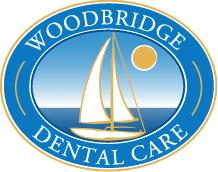Woodbridge, VA Dentist
 By now, you have likely seen news reports questioning whether flossing is necessary for your oral health.
By now, you have likely seen news reports questioning whether flossing is necessary for your oral health.
We want to answer your question right away with an absolute YES. Cleaning between your teeth is an essential part of caring for your teeth and gums.
Whether you use traditional string dental floss, a water flosser, an interdental (between teeth) brush, or other form of interdental cleaning, it is important that you clean between your teeth correctly and on a daily basis.
Unfortunately, in the quest for catchy headlines, many news agencies have been providing a great deal of incomplete and inaccurate information.
Here’s the truth: Plaque and bacteria can be prevented from building up between teeth when flossing is done correctly on a daily basis.
Why does that matter? Build-up of plaque and bacteria between teeth is one of the leading causes of periodontal disease, a condition which not only affects your mouth, teeth, and gums, but has been linked to complications with diabetes, heart disease, Alzheimer’s disease, and many other systemic health issues.
The next time you visit our office, ask your hygienist to show you the most effective way to clean between your teeth. For more information on flossing and interdental cleaning or to schedule an appointment, contact us.






 Our expert dentist wants to remind patients that our office offers thorough oral cancer screenings as part of our comprehensive dental health services. Like with every form of cancer, early diagnosis can have a profound impact on the success of your treatment. Regular screenings are your first line of defense against oral cancer and our doctor is here to help.
Our expert dentist wants to remind patients that our office offers thorough oral cancer screenings as part of our comprehensive dental health services. Like with every form of cancer, early diagnosis can have a profound impact on the success of your treatment. Regular screenings are your first line of defense against oral cancer and our doctor is here to help.